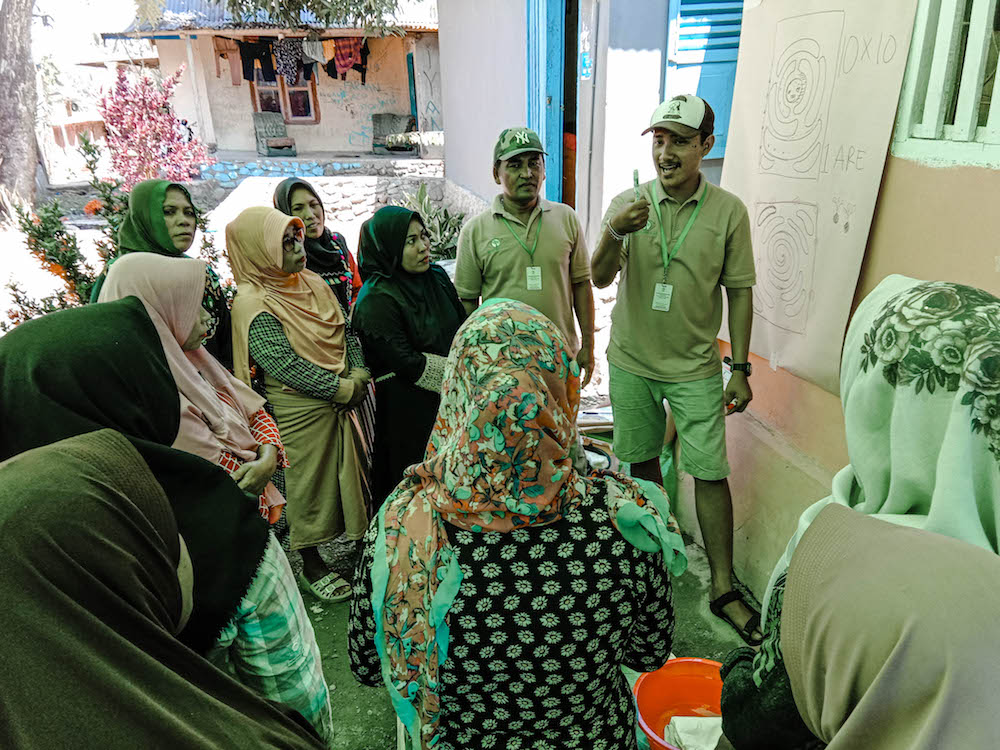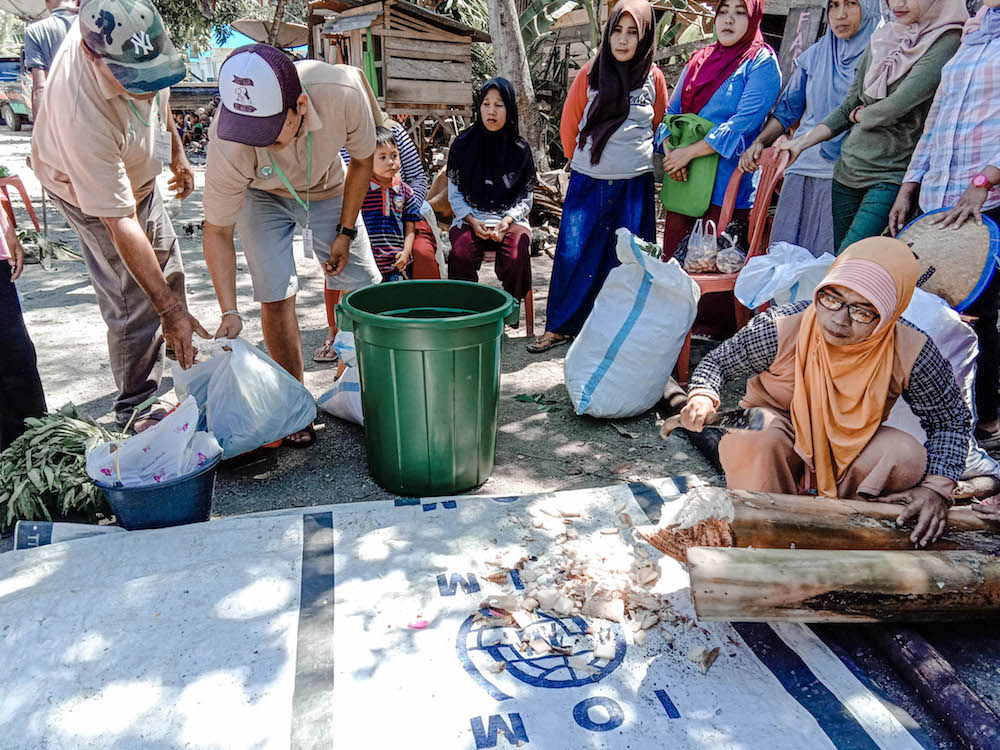Post-Disaster Recovery Through Family Home-Garden in Amal Village
When the M 7.4 earthquake shook in September last year, Amal village located in the remote area of Donggala district was one of the most severely affected. In addition to many houses severely damaged, damaged access roads and the absence of communication signals have even left the community isolated without help for almost two weeks.

The housewives were invited to learn how to design a permaculture-based home garden before cultivating it (Photo: Fadhil Abdullah)
To support the community recovery and build their self-sufficiency, on 5-6 August 2019 we partnered with YPAL Poso to organize a Family Home-Garden Management training. Two weeks earlier, IDEP has also delivered other support through Disaster Risk Reduction training for a number of the village representatives.

The beds were formed by replicating natural patterns (Photo: Fadhil Abdullah)
The home-garden management training was participated by 25 housewives representing their respective families. With this permaculture-based training, they are expected to be able to meet their family needs for healthy food self-sufficiently. Later on, if the harvest is surplus, they can sell it to generate family income.

Making natural compost and pesticide using natural materials in the neighborhood (Photo: Fadhil Abdullah)
During the 2-day training, the housewives were introduced to permaculture as an environmentally friendly agriculture system. By using materials that are available in their neighborhood, they were also invited to directly practice how to test soil fertility, make liquid fertilizers and natural pesticides, seed-saving, and build a permaculture garden in one of the participant's home yards. At the end of the day, each participant also received the package of agricultural equipment which they can use to start the home-garden with their family. (Ed)
Subscribe to IDEP Newsletters
Give a gift that will change lives. 100% funds charity projects.
|






